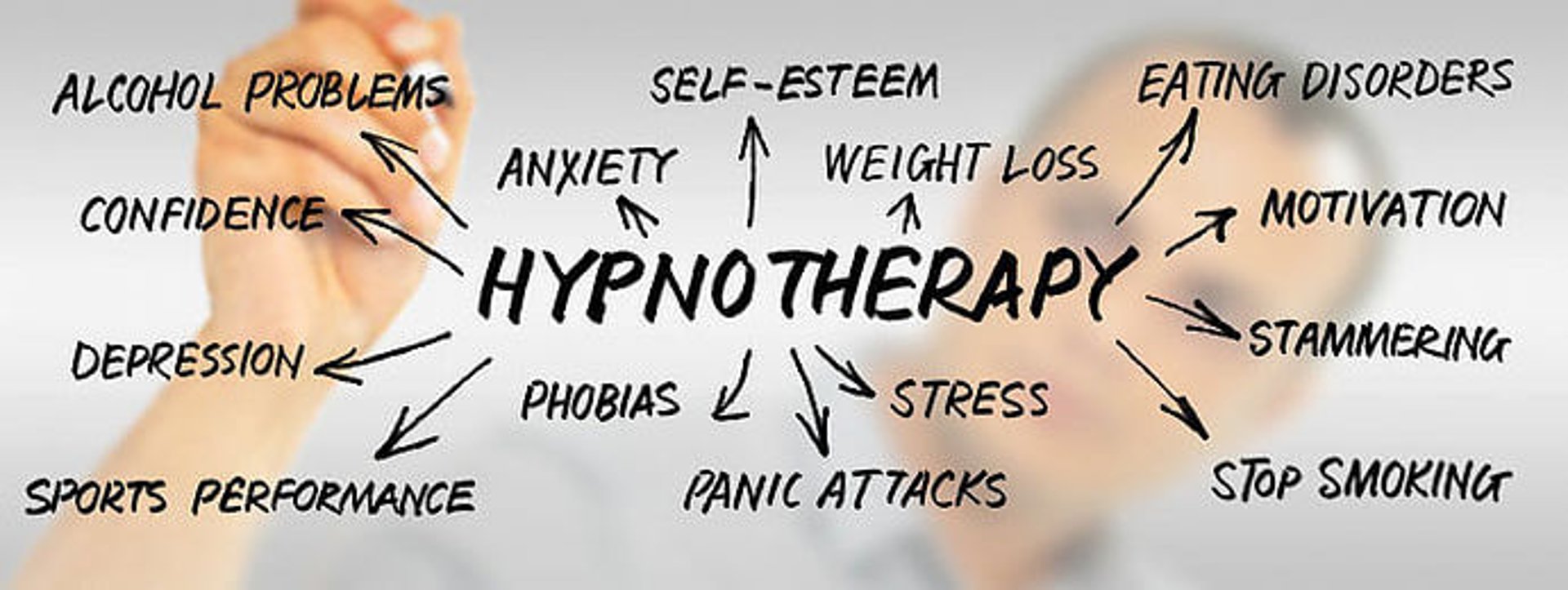
MENTAL HEALTH DISORDER


Several types of disorders related to psychology and emotions include:
Stress & Anxiety: difficulty relaxing, often feeling tense, excessive worry.
Depression & Loss of Motivation: feelings of emptiness, helplessness, loss of drive.
Trauma (PTSD): past experiences that still haunt (accidents, violence, loss of loved ones).
Phobia: excessive fear of specific situations/objects (fear of heights, enclosed spaces, insects, etc.).
Insomnia & Sleep Disorders: difficulty falling asleep, frequent waking, nightmares.
Resentment & Emotional Wounds: unresolved emotional pain.
Scientific Background
Emotional disorders such as stress, anxiety, and trauma are triggered by overactivity in the amygdala (the brain’s emotional center) and weak control of the prefrontal cortex. As a result, the body enters a fight or flight mode (danger alert). In this state, the body undergoes biochemical changes through stress hormones:
Cortisol: released by the adrenal glands during stress; high levels cause restlessness, sleep disturbance, and lowered immunity.
Adrenaline & Noradrenaline: increase heart rate, blood pressure, and hyper-alertness.
Serotonin & Dopamine: when disrupted, they lower mood, motivation, and trigger depression.
Melatonin: production is inhibited during prolonged stress, causing insomnia.
This hormone imbalance explains why people with emotional issues often experience physical symptoms such as heart palpitations, headaches, insomnia, and chronic fatigue.
The Role of Hypnotherapy
Hypnotherapy lowers brain waves into the Alpha–Theta state, which activates the parasympathetic nervous system(rest & digest).
Physiologically, it helps to:
Reduce cortisol, making the body calmer.
Decrease adrenaline, helping the heart beat more steadily.
Increase serotonin & dopamine, supporting a more positive mood.
Regulate melatonin rhythm, leading to deeper sleep.
At Mandala Jiwa, we combine Hypnotherapy with other techniques, so clients can:
Release trauma that keeps them stuck in the past.
Transform excessive anxiety into a sense of calm.
Manage phobias and build stronger self-confidence.
Heal resentment and unresolved emotional wounds.
Improve sleep quality and restore natural balance.
PSYCHOLOGICAL & EMOTIONAL DISORDERS


Some common issues related to habits and addictions include:
Smoking & Alcohol: reduce or quit completely.
Overeating / Emotional Eating: manage unhealthy eating patterns, binge eating.
Gadget & Game Addiction: dependence on social media, online gaming, and difficulty detaching from screens.
Online Gambling & Compulsive Behaviors: uncontrollable urges that are self-destructive.
Drug Use: supportive complementary therapy for rehabilitation.
Nail Biting: small yet persistent habit that is hard to stop.
Scientific Background
Habits and addictions are formed through the brain’s reward system (dopamine pathway).
When someone smokes, drinks alcohol, plays games, or uses drugs, the brain releases dopamine—a neurotransmitter that creates temporary feelings of pleasure, satisfaction, or relief.
However, when repeated, the brain undergoes biological changes:
Tolerance: the brain needs more stimulus to feel the same effect (e.g., one cigarette is no longer enough, leading to more).
Dependence: the brain becomes “hooked,” relying on the habit to feel comfortable.
Compulsiveness: even when aware of the harm, individuals keep repeating the behavior because the dopamine pathway associates it with relief.
Addictions also affect other brain chemicals:
Cortisol (stress hormone): increases when trying to quit, leading to withdrawal symptoms (restlessness, irritability, anxiety).
Serotonin: imbalance makes mood more unstable and prone to depression.
Endorphins: normally released through healthy activities (exercise, joy), but replaced by “shortcuts” from bad habits.
This shows that addiction is not just a behavioral issue—it creates real structural changes in the brain, especially in:
Nucleus accumbens (pleasure & reward center).
Prefrontal cortex (control & decision-making).
Amygdala (emotions & cravings).
The Role of Hypnotherapy
Hypnotherapy helps “interrupt” the cycle of harmful habits and replace them with healthier patterns.
In the trance state (alpha–theta state), the subconscious mind—where habits and associations are stored—becomes more open to change.
At Mandala Jiwa, recovery is enhanced with proven methods such as Hypnotherapy, CBT, DBT, ACT, EFT, and Spiritual approaches, all tailored to each client’s personal goals.
With this combined method, clients are not merely “forced to quit,” but are guided to reprogram the dopamine pathway, reduce cravings, and build stronger self-control.
The results are natural, lasting, and aligned with the client’s authentic healthy identity.
BAD HABITS & ADDICTIONS




Hypnotherapy can support parents, children, and teenagers in overcoming growth and parenting challenges:
Parenting Support: helping parents become more patient, mindful, and compassionate.
ADHD & Concentration: assisting children to focus better, stay calm, and build confidence.
Bullying (Victims & Perpetrators): mental recovery for victims, and behavioral guidance for perpetrators.
Low Self-Esteem: strengthening children’s and teenagers’ self-worth and confidence.
Study Motivation: enhancing interest, focus, and enthusiasm in learning.
Scientific Background
The family is the first and most important environment that shapes a child’s mindset, emotions, and behavior. The parent–child relationship has a profound impact on long-term mental health.
Childhood & Adolescence (Golden Age & Neuroplasticity):
A child’s brain, especially the prefrontal cortex (self-control function), continues to develop until the mid-20s.
The amygdala is more active, making children and teens more emotional, impulsive, and less able to regulate themselves.
Because of high neuroplasticity, parenting styles, words, and experiences easily shape the subconscious mind and personality.
Hormones & Emotions:
Children and teens experience frequent dopamine fluctuations (sensation-seeking, easily bored).
Cortisol increases during academic stress, bullying, or family conflict.
If parents are often harsh or angry, it can trigger emotional trauma that lowers self-esteem into adulthood.
Family as a System:
Parental conflicts (fights, divorce, neglect) can make children feel unsafe.
Parents who are stressed or emotionally unstable may unconsciously pass down the same patterns to their children (intergenerational trauma).
The Role of Hypnotherapy
Hypnotherapy can support both parents and children/teens in many ways:
For Children & Teens:
Heal trauma caused by bullying, violence, or rejection.
Help children with ADHD become more focused, calm, and confident.
Reduce learning anxiety and boost academic motivation.
Build healthy self-esteem from an early age.
For Parents:
Manage stress and emotions for more compassionate parenting.
Learn positive communication with their children.
Release negative parenting patterns inherited from previous generations.
For Family Relationships:
Repair broken communication.
Reduce household conflicts.
Create more harmonious interactions at home.
With hypnotherapy, children are guided to grow with confidence and resilience, parents learn patience and support, and families rediscover harmony as one united system.
FAMILY RELATIONSHIPS, PARENTS & CHILDREN




Psychosomatic Conditions That Can Be Supported
Digestive Disorders: GERD, IBS, stress-related gastritis.
Chronic Pain: migraines, back pain, muscle tension, fibromyalgia.
Psychosomatic Allergies: bodily reactions triggered by emotional stress.
Chronic Fatigue Syndrome (CFS).
Stress-Related Skin Disorders: eczema, psoriasis.
Scientific Background
Psychosomatic conditions occur when thoughts and emotions directly affect physical health. Medically, this is explained through the connection between the brain–nervous system–hormones–body.
Stress System (HPA Axis – Hypothalamus, Pituitary, Adrenal):
During stress, the hypothalamus releases CRH (Corticotropin-Releasing Hormone).
The pituitary gland responds by producing ACTH.
The adrenal glands release cortisol and adrenaline.
When stress is prolonged, high cortisol levels can lead to:
Increased blood pressure.
Weakened immune system.
Digestive disorders (GERD, IBS).
Chronic muscle pain or headaches.
Gut–Brain Axis:
Emotional stress disrupts the balance of gut microbiota.
This can trigger bloating, diarrhea, or constipation.
Many patients with Irritable Bowel Syndrome (IBS) show improvement after relaxation-based therapies, including hypnotherapy.
Somatization of Emotions:
Suppressed emotions (anger, sadness, trauma) do not disappear but are “stored” in the body.
This often manifests as physical symptoms without clear medical causes, such as chest pain, migraines, or chronic fatigue.
The Role of Hypnotherapy
Hypnotherapy works by calming the nervous system and guiding the body back into a rest & digest mode. Its effects include:
Lowering cortisol levels → creating deep relaxation.
Reducing amygdala activity → decreasing emotional overreactions that trigger physical symptoms.
Balancing serotonin & dopamine → improving mood and supporting digestive health (as 90% of serotonin is produced in the gut).
Releasing suppressed emotions safely, so the body no longer “carries” unresolved burdens.
Through hypnotherapy interventions, clients are supported to calm their mind, release hidden emotions, and retrain their body to respond in a healthier way.
The result is not only a reduction of physical complaints but also the restoration of balance between mind, emotions, and body.
PSYCHOSOMATIC


Personal Development Areas Supported
Confidence & Public Speaking: appear more calm, convincing, and self-assured.
Sports & Academic Performance: sharpen focus, concentration, and develop a winner’s mindset.
Work Productivity: overcome procrastination, increase discipline, and achieve goals consistently.
Life Motivation & Purpose: discover meaning in life and stay inspired.
Creativity & Problem Solving: unlock potential for new ideas and innovation.
Scientific Background
Personal development is about strengthening individual potential across emotional, cognitive, and behavioral aspects. From neuroscience and psychology, several key mechanisms play a role:
Role of the Subconscious Mind
90–95% of human behavior is influenced by the subconscious mind.
Early experiences, repeated words from parents, or past events shape mental patterns that last into adulthood.
Example: a child who is often criticized may grow up with low self-confidence.
Brain Neuroplasticity
The brain can form new neural pathways through repeated thoughts and experiences.
Mental visualization has been shown to be as powerful as real-life training in building skills (e.g., an athlete imagining victory).
Hormones & Neurotransmitters
Dopamine: linked to motivation, drive, and focus.
Serotonin: boosts confidence and emotional stability.
Endorphins & Oxytocin: generate happiness, social bonding, and healthy relationships.
When these hormones are balanced, individuals become more productive, creative, and able to manage stress effectively.
The Role of Hypnotherapy
Hypnotherapy helps clients access the subconscious mind to:
Release limiting beliefs such as “I can’t” or “I always fail.”
Plant empowering suggestions that support growth.
Train the brain to rehearse success, so new neural pathways strengthen (mental rehearsal).
Build stronger emotional resilience for calmness, focus, and confidence.
With hypnotherapy, personal development goes beyond motivation—it creates real changes at the subconscious level.
The result: You become more confident, productive, and ready to face life’s challenges with a strong mind and balanced emotions.
PERSONAL DEVELOPMENT


Spiritual & Holistic Growth Supported by Hypnotherapy
Discovering life purpose and spiritual direction.
Enhancing self-awareness & mindfulness.
Connecting with positive energy.
Releasing karmic burdens and repetitive patterns.
Creating balance of mind, body, and soul.
Cultivating gratitude, acceptance, and vibrations of love.
Scientific Background
Human health is not only physical and mental, but also spiritual and meaningful.
Modern psychology research confirms that spiritual well-being is directly linked to happiness, resilience, and quality of life.
Neuroscience of Spirituality
fMRI studies show that spiritual practices (prayer, meditation, spiritual hypnosis) activate the prefrontal cortex (awareness), anterior cingulate cortex (empathy), and reduce amygdala activity (fear & anxiety).
Activation of the default mode network (DMN) helps people feel more connected to themselves, others, and the universe.
Hormones & Neurotransmitters
Oxytocin: the bonding hormone, increased during spiritual practices like meditation, fostering peace and compassion.
Endorphins & Serotonin: create feelings of gratitude, joy, and fulfillment.
DHEA (natural anti-stress hormone): rises during spiritual relaxation, strengthening resilience and immunity.
Psychology & Spirituality
Viktor Frankl’s Logotherapy highlights the importance of discovering meaning in life to overcome suffering.
Spirituality offers a new framework of interpretation, allowing trauma or emotional wounds to be understood as part of personal growth.
The Role of Hypnotherapy
Spiritual hypnotherapy combines deep relaxation with exploration of life’s meaning, allowing clients to:
Higher Self Connection: access inner wisdom and guidance.
Past Life Regression (PLR): explore past experiences (for those open to it) as a reflection for self-understanding.
Spiritual Healing: clear negative energy and restore positive vibrations.
Self-Compassion & Forgiveness Therapy: release resentment, cultivate forgiveness, and strengthen self-love.
Meditative Hypnotherapy: enter a mindful state that enhances spiritual awareness.
With spiritual hypnotherapy, clients are not only supported to “heal” from emotional wounds, but also to rise into higher levels of consciousness.
The result: a more peaceful, meaningful, and aligned life, in harmony with one’s spiritual purpose.
SPIRITUAL & HOLISTIC




Relationship & Couple Issues That Can Be Supported
Trauma caused by infidelity or betrayal.
Repeated arguments and toxic communication.
Difficulty in building trust.
Feelings of worthlessness in the relationship.
Struggling to move on after a breakup or divorce.
Loss of intimacy with a partner.
Scientific Background
Human relationships are deeply influenced by emotions, communication, and attachment styles formed since childhood.
Attachment Theory
Early experiences with caregivers shape how we love, trust, and communicate with partners later in life.
Neuroscience of Love & Relationships
Oxytocin & Vasopressin: hormones that strengthen bonding between partners, but may decrease during conflict.
Dopamine: triggers pleasure and excitement in the early stages of love, but tends to drop over time, leading to a feeling of disconnection.
Cortisol: rises during conflicts, making the body tense and clouding judgment.
Emotional wounds such as betrayal, infidelity, or rejection can cause overactivity in the amygdala (negative emotions), making it hard to move on or trust again.
The Role of Hypnotherapy
Hypnotherapy helps improve the quality of relationships by:
Healing Relationship Trauma
Releasing emotional pain caused by infidelity, betrayal, or divorce.
Reducing resentment, hurt, and feelings of worthlessness.
Building Positive Communication
Planting suggestions for calmer, more constructive dialogue.
Enhancing empathy (through guided imagery & reframing).
Strengthening Partner Bonding
Helping couples rediscover love, intimacy, and mutual appreciation.
Supporting Individuals to Move On
Training the mind to release the past and build a stronger new identity.
With hypnotherapy, clients are not only taught communication skills but are also guided to heal deep emotional woundsthat shape how they love and relate.
The result: healthier, more loving, and more harmonious relationships.
RELATIONSHIP


Professional Performance & Career Development Supported
Public Speaking: appear confident in front of an audience.
Career & Leadership: strengthen mental leadership, stress management, and productivity.
Athletes & Competitions: enhance concentration, focus, and champion mindset.
Creative Professions: unlock new ideas and innovation.
Work Productivity: overcome procrastination, improve time management, and energy control.
Long-Term Motivation: sustain enthusiasm and career direction.
Scientific Background
Performance in work and achievement is influenced by mindset, emotional regulation, and self-confidence. From neuroscience & psychology:
Work Stress & Burnout
Heavy workload raises cortisol → lowers concentration, triggers insomnia, and reduces productivity.
Excessive amygdala activity makes employees easily irritated, unfocused, and mentally exhausted.
Public Speaking & Fear of Failure
Amygdala hijack: when speaking in public, the brain perceives the situation as a “threat” → rapid heartbeat, shaky voice, blank mind.
Weak regulation of the prefrontal cortex leads to loss of control.
Sports & Competition Performance
Athletes and professionals require a champion mindset.
Mental rehearsal (visualizing success) activates the motor cortex, as if the body is training in real life.
Motivation & Creativity
Dopamine drives enthusiasm and innovation.
In chronic stress, dopamine levels drop → leading to stagnation and loss of motivation.
Hypnotherapy helps reactivate brain motivation patterns.
The Role of Hypnotherapy
Hypnotherapy enhances professional performance by:
Confidence Building: boosting self-assurance in presentations, interviews, or negotiations.
Stress Management: calming the nervous system, lowering cortisol, and increasing focus.
Future Pacing: rehearsing future success until the brain adopts a new “winner identity.”
Peak Performance Hypnosis: used by athletes, musicians, and executives to sharpen focus, consistency, and motivation.
Creativity Unlocking: opening mental blocks and accessing new ideas through guided imagery.
With hypnotherapy, performance is not solely dependent on “hard work” but also supported by a subconscious mind aligned with goals.
The result: professionals who are more confident, productive, and resilient—ready to face pressure with calm strength.


